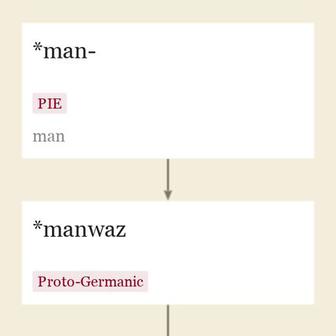muscle-man n.
1929, originally "
Entries linking to muscle-man
"
So called because the shape and movement of some muscles (notably biceps) were thought to resemble mice. The analogy was made in Greek, too, where mys is both "
Musclez & lacertez bene one selfe þing, Bot þe muscle is said to þe fourme of mouse & lacert to þe fourme of a lizard. [Guy de Chauliac, "Grande Chirurgie," c. 1425]
Hence muscular and mousy are relatives, and a Middle English word for "

"
Sometimes connected to root *men- (1) "
Specific sense of "
Man also was in Old English as an indefinite pronoun, "
As "
Man-about-town "
So I am as he that seythe, 'Come hyddr John, my man.' [1473]
MANTRAP, a woman's commodity. [Grose, "Dictionary of the Vulgar Tongue," London, 1785]
At the kinges court, my brother, Ech man for himself. [Chaucer, "Knight's Tale," c. 1386]
updated on January 23, 2019